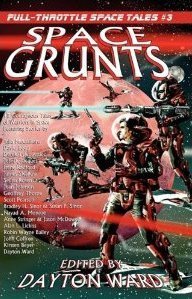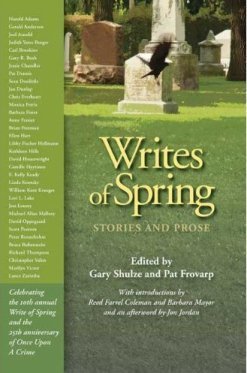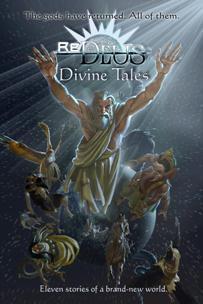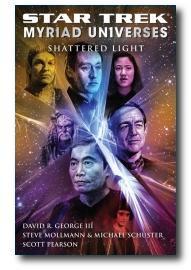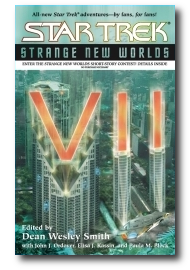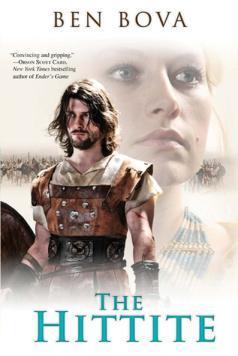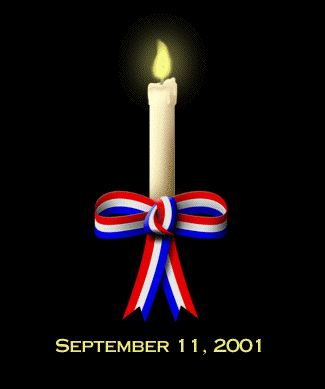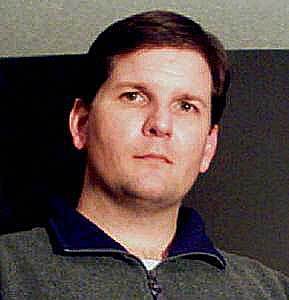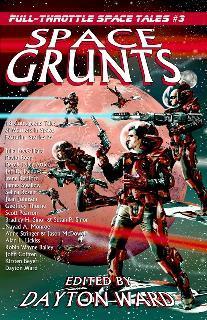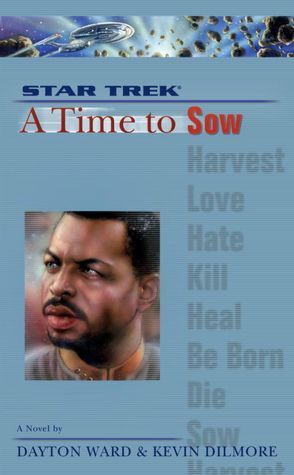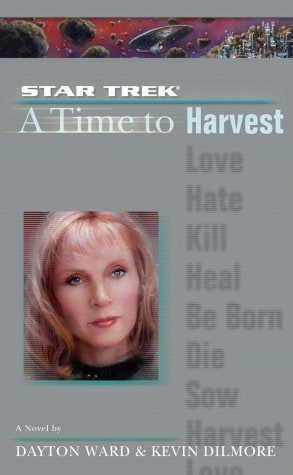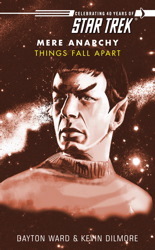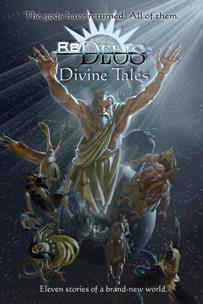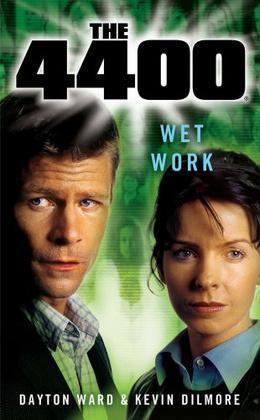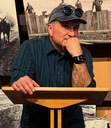Phil Giunta's Blog, page 101
September 14, 2012
About This Writing Stuff...
Jody Hedlund touches on first drafts while Kristine Kathryn Rusch advises us to worry less about fitting into a definition and just be writers. Lisa Cron cautions us against the biggest mistake writers make. Veronica Sicoe asks how much hard science should be included in science fiction? All that and more!
Also, congratulations to Aaron Rosenberg on the release of the second book in his DuckBob SF comedy series, Too Small for Tall .
Author Pens Attack on the eBook Pirates by Benedict Moore-Bridger
Did Social Media Lead Woman's Assailant to Her Car? by Damon Poeter
Treating Backlist Like Frontlist by David Gaughran
Pricing 2013 by Dean Wesley Smith
The Funny Thing About First Drafts by Jody Hedlund
The Writer You Want To Be by Kristine Kathryn Rusch
The Writer's Block Myth by Kristyn Kusek Lewis
The Biggest Mistake Writers Make and How to Avoid It by Lisa Cron
How Much Science in Science Fiction? by Veronica Sicoe
DuckBob is Back in Too Small for Tall by Aaron Rosenberg
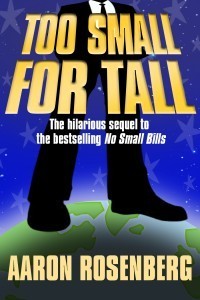
Covering Covers
Steven H. Wilson
Some interesting thoughts here. The biggest thing I have to contribute -- and I don't hear from too many people -- is that, while you want your cover to stand out, you also want it to look like the kind of book it is. If you put pastel colors and fabric designs on your hard SF novel, no one's going to grok right away what it is. So, while it may seem tragically unoriginal, I'd say there's value in looking at the designs of books that are selling to the audience you want to sell to, and trying to incorporate key elements of their covers. SF books look like no other books, generally. If an SF novel looks like a John Grisham thriller, then SF fans won't notice it on the shelves, and I'd say it's likely that the publisher is trying to take the author "legit," and appeal to a more mainstream audience. Whoever published John Varley's Mammoth novel did this, and I don't think it served the book well. It made me want to read it less, and it didn't say that it was a book by one of the greatest SF writers still living.
Perhaps I speak only for myself, but I'm often drawn in this way. I catch myself looking at a cover because it reminds me of another book I loved.
Spaceships say pulp or hard SF.Closeups of people in costume say character driven adventure.Whimsical color shots of faeries, gnomes or elves say the obvious.Just letters with color say "This is an NYT bestseller. Period."Closeups of jewelry say Danielle Steel.Naked flesh says, surprisingly, not porn, but romance with a little sex.I don't peruse enough porn books to know what says porn. To me, high speed internet says porn.
Aaron Rosenberg
Thanks for including me, Phil! Don't know if you saw it, but I actually did a post on the Crazy 8 site about covers , and specifically about exactly what Steve mentioned--the No Small Bills cover was classy and cool but didn't say "really silly SF" so I changed it completely, going for something that definitely did. I also looked at thumbnails to make sure it would still look fun at that size--one cool thing, a designer friend pointed out, was that at small size you could even more readily see that it was a duck crunching down on the Earth because your brain filled in the rest of the duck's head.
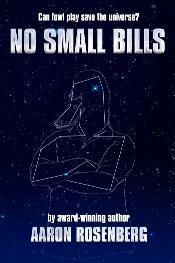
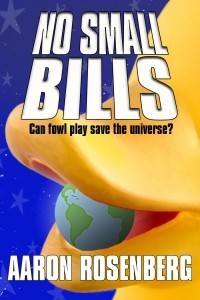
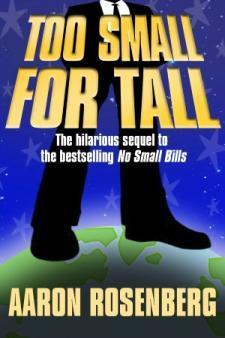
Of course, one thing the article doesn't mention is proportion. As someone who's still primarily a print designer, I still tend to think in those dimensions, going with a 6x9 canvas as a matter of course. But for ebooks you're not really bound to that format. You can go full-on square, you can have a much longer cover, whatever you like as long as you're within the minimum and maximum. That allows for a lot more freedom. Some designs work better square. Others need a longer frame. The cover for For This Is Hell is longer than a print version would be, but that really worked with the image itself.
There's also the difference in materials. With print you're dealing with matte versus gloss finish, the possibility of things like foil and embossing, etc. Ebooks have a flat image, period. That can be a little limiting, but it's also nice because what you see really is what you get. Too often you'll design a print cover and it looks great onscreen and even as a printout but when you see it on the actual book you realize it's too dark or too light or a little off-center or oddly balanced or whatever. With ebooks, the image you create is the final version, and if it looks great on your screen you're all set.
Then there's the ability to change your cover, as I did. It's so much easier to do that with ebooks, since you don't have to recall and pulp extant print copies. That makes it easier to build a brand, as well, since you can have a great idea for a series look with the second or third book and easily and quickly go back and retrofit its predecessors to match. Of course, you have to be careful not to just go back and tinker whenever you get the itch. :)
As you can see, I've got a lot to say on the topic of covers. :)
Howard Weinstein
Interesting idea, Phil -- and that dearauthor.com post was enlightening. Both Steve and Aaron make assorted valuable points. But all that good info convinces me that cover design is about 25% certain rules and guidelines and 75% subjective: how it catches my eye may be totally different than how it catches yours.
Honestly, looking at the "field test" of romance covers [in the Dear Author article], almost none of them stand out to me. So many variations on flowing gowns and heaving bosoms! There are only a couple that don't seem generic and interchangeable. The Wild Montana Sky cover benefits from being set in a specific and different locale. But, among this sampling of genre covers, that and the one with the bare-chested Scotsman are really the only two that dare to be somewhat different. If I were doing a romance, would I really want yet another cover featuring a girl in a fancy dress? Don't they all look pretty much alike?
(I'm also wondering why, on the Midnight Scandals cover, Sherry Thomas's name doesn't match the font-size pattern of the other two names. Am I missing something?)
The best, most-widely-applicable advice seems to be: high-contrast between words and image, and avoiding muddy colors. But the requirement of having title and author's name big enough to be seen in a thumbnail is problematic.
Even on the covers which are supposedly designed with that in mind, you really can't read anything in social-media thumbnail size.
The title and author name would have to take up the entire cover in order to be readable at that size -- and that would look horrible in larger sizes. So, in the age of the e-book, I'm not convinced "one size fits all" is really possible. At best, you'll end up with a compromise.
I also wonder if it's really a good idea for a cover image to be a photo or illustration of people representing specific characters in the story? If one of the joys of reading is using the author's words to conjure your own personal picture of the characters in your head, does a photographic cover rob the reader of that pleasure? Unless it's a biography, might it not be better for a cover to be less literal, to depict something more symbolic yet specifically related in some important way to the story? Like this:
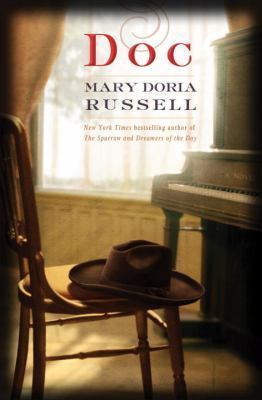
This cover is from the recent historical novel about Doc Holliday. The hat indicates it's a western -- but a hat sitting on a chair in front of a piano hints it's a different kind of western. The arrangement of the elements in the image and the color choice forms a frame around the window, which itself provides a lighter space against which to place the title and author's name, allowing that sought-after contrast which makes the words more readable in smaller sizes.
Phil
I agree that characters should not be depicted on the covers. I prefer to imagine the characters in my head as I read. The only exception in fiction might be media tie-in fiction (we all know what Captain Kirk, Han Solo, etc. look like)
And yes, I couldn't pick out that romance novel's cover in any of the three sets of examples. I had to hunt for it. Not that I mind looking at heaving bosoms...
Steven H. Wilson
Not sure I agree. Again, I think characters being shown on the cover indicate focus of the story. One cover which stands out in my mind as making me stop and pick up a book was the 1970s cover to The Caves of Steel. It's a photo-realistic painting of R. Daneel Olivaw, the robot cop in the story, holding his arm with exposed electronics out at the reader. While the man who modeled for the painting looks nothing like Daneel as I picture him (why would genetically perfect people build a robot with thinning hair and no chin and say he looked like the ideal human?) the image said to me that A) This was SF (which I knew because it was Asimov) B) there's a robot or at least a cyborg in it and, most importantly C) it's about PEOPLE, not concepts, events or technology.
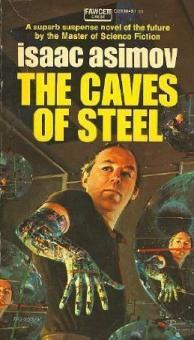
I can't imagine Heinlein's Job or Friday without character covers, or the 2001 series without Whelan's amazing paintings of Dave, Hal and the Star-Child. And of course all the John Carter and Tarzan covers are character covers. Similarly, all the Callahan books have characters on the cover. Almost all historical fiction paperbacks have character covers.
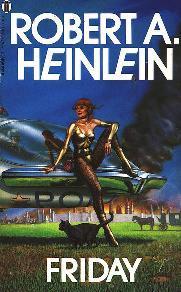
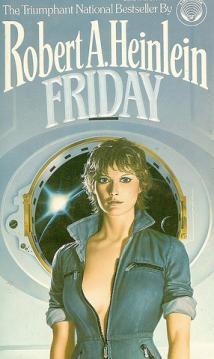
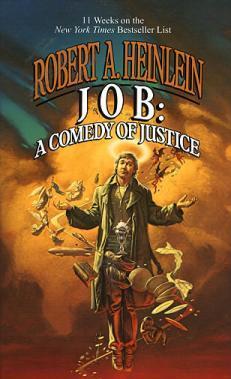
Right now, I'm staring at Timescape on my paperback rack. TERRIBLE cover. A picture of the earth on black? Really? It says nothing at all about the story. It doesn't even say "SF" to me. In fact, it reminds me of one of the many apocalypse-prediction non-fiction books of the seventies. Has there ever been a fantasy cover without characters? Other than the classic covers for Tolkein? Which, BTW, never made me want to even open the books?
Hardcovers are often different, of course. They tend to feature paintings less and font and design work more.
The only reason my Arbiters books (other than Taken Liberty ) don't have character covers right now is that I was looking for a simple, clean design that could be used on multiple episodes, and Ponch's ship art seemed to fit the bill when added to Ethan's colorful, striking, comic-book cover design. My next major Arbiter novel will probably have a painted cover or photo-manip of a character, most likely Atal, since it's an Atal story. It's all about what you want that first impression to be.
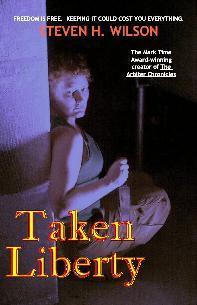
Aaron Rosenberg
The question of using a character from the book on the cover is definitely a tricky one. On the one hand, if you have an awesome, potentially iconic character, and can get an artist to absolutely nail him or her, that can really lock the character, the book, and the series in someone's head. Feist's Magician comes to mind--it features Pug/Milamber on the cover wielding magic, and tells you at a glance that this is high fantasy and that he's the lead character. On the other hand, if you can't nail that down perfectly, you might be better off not trying, to leave the character open to reader imagination. Look at the Elric novels, all of which feature Elric on the cover. But he's a brilliant, distinctive, unforgettable character, and the different artists (notably but not exclusively Whelan) capture him beautifully. Any other style of cover wouldn't do those novels justice because they are all about Elric, even beyond what's normal for a novel and its protagonist.
With a book featuring a known character, you have to be even more careful--either you get it exactly right or you don't even go near it. I'm thinking of things like Agatha Christie's Poirot, Robert Parker's Spenser for Hire, etc. In a lot of those cases, though, you don't need to show the character on the front because the readers already know what he or she looks like, and you're better off just going for something that evokes the genre, setting, and mood.
Tie-in books have to feature something straight from the source material. You can't have a Eureka novel without Sheriff Carter on the cover, or a Trek Original Series novel without Kirk or Spock or McCoy or at least Scotty or Sulu. Because really for those you're showing that it's official and contains those familiar faces.
And Howie's point about the romance covers is interesting. It's tough to figure out whether you're going to show exactly what's expected--like heaving bosoms and billowing gowns for a romance--or do something different to catch the eye. I usually think you should try for something familiar but shown a little differently, if possible--a different vantage, a different scale, things like that, so that you make an old visual trope fresh again. For mass markets, clearly a lot of cover designers just go with what they--and the readers--know and expect. It's easy and simple and really can't miss, but it can and often will get lost in the crowd.
Phil
Sorry, I should have been clearer. I don't like photographs of models used as characters. Friday's cover was OK for me as it was a painting or drawing of Friday. To me, when I see paintings of characters on covers, I just look at that as the artist's interpretation. One of Peter David's Star Trek: New Frontiers covers has a picture of Captain Calhoun. It's a photo of a guy posing in a Starfleet uniform holding a sword. I never read any of those books because I just don't have an interest in reading Star Trek anymore but that cover just looked cheap.
Someone bought a paperback copy of Ben Bova's The Hittite for me as a Christmas gift. I would not have bought this on my own. I like most of Bova's SF but this was historical fiction about the Trojan war and the cover had photos of models portraying Helen of Troy and Lukka the Hittite soldier from whose POV the story was told. For some reason, having models on the cover just does not appeal to me. Have an artist paint or draw the characters and while I'll admire the art, I will leave that as the artist's interpretation but the minute you use REAL people to model characters in a book, that seems odd to me, like a models on a magazine cover. They're not portraying the characters on TV or in a movie so why bother using real people?
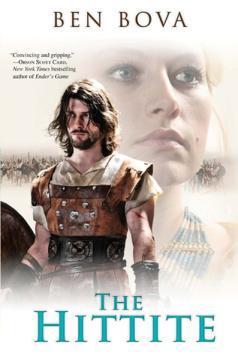
Howard Weinstein
Steve and Aaron's further observations reinforce my feeling that covers are 75% subjective. If people who write and publish books like character covers, use 'em. But try to make it NOT look like every other cover in the same genre (which most of those romance cover examples DON'T do). For example: Steve, I happened to like your cover for Taken Liberty because it was moody and evocative, so it wasn't generic. My point on this was that a character cover should have SOMETHING specific to the characters or story that sets it apart from others in the genre.
And as this discussion relates to self-publishing, we can probably set aside media tie-in and famous-character books (like the aforementioned Tarzan). Most of us won't be remembered as creators of world-famous "iconic" characters. I certainly agree character covers are expected by readers and probably required with those, since they do help sell the ongoing series of books.
Although, even with Star Trek books, it was a struggle right from the start to make them NOT all look the same. I hated the cover to my first one, Cove nant of the Crown . Totally generic, and not very well done. Once I realized the artists didn't have time to read the books, and nobody really told them much (anything?) about each story -- so all they COULD do was generic illustrations. On my next 5 Trek novels, I did pencil sketches laying out some story-specific possibilities.
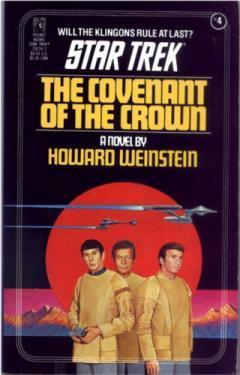
The one artist I met was Keith Birdsong , who did many of the Trek covers back then; he said he really appreciated getting some guidance so he could do a more story-specific cover.
With my last stand-alone Trek novel, somebody at Pocket Books never bothered to give my sketches to Keith, so it came out with a generic Trek cover (that wasn't even from the right era). So much for attention to detail by the editors! By the time they showed me the cover, it was too late to change it. Since I DID put in the extra effort to make the cover better, and the editors screwed up, I was pretty annoyed.
I suspect character covers grew out of movie posters, where the stars were typically a big part of the marketing campaign, so you'd certainly WANT their faces on the posters. But books that aren't media tie-ins or about iconic famous characters don't really have "stars" in that sense of the word. That's why I think generic character covers are not necessarily the strongest choice -- even if it's what's expected. Too many cover designers don't seem to put in the extra effort to make the familiar fresh(er), as Aaron mentions.
September 12, 2012
Book Review: The Hittite by Ben Bova
After a long, exhausting battle far from home, Hittite commander Lukka returns with his squad only to find his once proud empire in ruins after a civil war. The emperor himself is dead, his palace burned to the ground. The city has been overrun by looters, murderers, rapists, and bandits.
In a desperate search for his wife and toddler sons, Lukka learns from his dying father that they have been taken by slave traders. Lukka fears that his sons will be murdered, as slavers have no use for toddlers.
Regrouping with his men, Lukka leaves his home and sets off for Troy on a hunch that this is where the slave traders would go to sell their captives. After a wearisome journey beset with battles and tragedy, the squad finally reaches Troy only to find the city under siege from the Achaeans led by the barbarian king Agamemnon and the Ithacans led by the more honorable Odysseus.
Agamemnon's brother, Menelaus, had married the most beautiful woman in the world, Helen. Yet Helen was disgusted by the barbarian and her life in Sparta had been misery until the day when Prince Paris from Troy arrived to collect tribute while Menelaus was away. Helen had run away with Paris and was accepted as a princess in the Trojan empire, sparking the war between Troy and Sparta.
Lukka and his men find themselves in the service of Agamemnon and Odysseus, though of the two kings only Odysseus spares Lukka any attention. Eventually, Lukka finds his wife, Aniti, and their sons. As Agamemnon is not known for releasing his slaves, Lukka petitions to Odysseus for their release, but his request is constantly delayed as the time never seems right for approaching the selfish king.
Part of the reason for Agamemnon's dark mood is his ongoing feud with Achilles who has refused to assist the king in his siege of Troy. Agamemnon had given Achilles a female slave as a reward for his bravery but then took her back. As a result, Achilles now holds a grudge.
Later, Lukka is selected by Odysseus to convey a message of peace to King Priam of Troy and there, he meets Prince Hector, Paris, and of course, Helen. The message is simple: return Helen to Menelaus and the siege will end. However, the Trojans reject the message and continue to successfully defend their kingdom from daily attacks by the barbarians.
Desperate to assist Agamemnon, if only for the release of his family, Lukka brings his military prowess to bear against Troy by constructing a "siege tower" that will allow soldiers to scale the lowest wall surrounding the great city. The tower is mistaken for a "giant horse filled with soldiers" and the war begins, but can Lukka save his wife and sons? What will become of Helen of Troy?
Having read two of Ben Bova's Voyager series novels and about six from his Grand Tour series (all science fiction), The Hittite was a departure for me. The pacing was much faster, the story focused on a few characters, and it was written entirely in first person POV of Lukka. I'm accustomed to Bova's stories written in third person POV and laden with characters.
I found his protagonist to be somewhat flat and Helen herself was portrayed by Bova as a selfish, spoiled, and somewhat callow woman yet still tragic at the same time. I enjoyed Poletes, an old "windbag" storyteller who is saved by Lukka and becomes his servant. He was the most entertaining character in the book.
Overall, I recommend The Hittite if just for an easy read and interesting twist on The Iliad. Bova does not spare details of the living conditions and barbaric practices of the time. Just do not expect an epic adventure tale or a story of any emotional depth.
September 11, 2012
Reading List for the Rest of 2012
The Gods Themselves by Isaac Asimov
Stalking the The Nightmare by Harlan Ellison
Reach for Tomorrow by Arthur C. Clarke
The Moon is a Harsh Mistress by Robert Heinlein
Have Spacesuit, Will Travel by Robert Heinlein
Voyagers by Ben Bova (I've read the second and fourth book in this series, like them)
Three Days to Dead by Kelly Meding
As Like the Dead by Kelly Meding
Another Kind of Dead by Kelly Meding
Wrong Side of Dead by Kelly Meding
Trance by Kelly Meding
Of course, all of these will be reviewed here on the blog.
pgiunta @ 2012-09-11T21:51:00
September 8, 2012
About This Writing Stuff...
Angela Ackerman calls out lying characters while Donald Maass encourages us to get on with our stories without delay. Should you have multiple blogs? Kristen Lamb answers, and Jael McHenry writes of endings. Enjoy!
How to Write and Plan a Book Series by Frances Brody via Chuck Sambuchino
How to Edit Your Book in 4 Easy Steps by Mike Nappa via Zachary Petit
5 Ways Writers Can Get the Most out of Goodreads by Patrick Brown via Brian Klems
Is This Title OK? by Andy Martin
What Should Indie Publishers Be Called? and Pen Names by Dean Wesley Smith
Get Over Yourselves and Ethical Roulette by Joe Konrath
When Characters are Liars by Angela Ackerman via Jami Gold
Without Delay by Donald Maass
Flip the Script: End Anywhere by Jael McHenry
When Do Writers Need Multiple Blogs ? by Kristen Lamb
September 6, 2012
Author Interview: Dayton Ward
The fourth installment in my ReDeus: Divine Tales interview series is a discussion with former US Marine now software developer, Dayton Ward. In addition to his impressive volume of original and media tie-in works, Dayton has contributed articles to Star Trek Magazine and as well as Tor's website and StarTrek.com. As a media tie-in writer, Dayton has penned stories in such universes as Star Trek and The 4400. He writes both solo and in collaboration with longtime friend Kevin Dilmore. Does Dayton's military experience influence his fiction? Let's find out!
First, tell us where we can find you online.
That’s easy enough: DaytonWard.com . It’s basically a splash page, with links to my blog (“ The Fog of Ward ”), my Facebook page, and my Twitter account. It’s your one-stop shop for all of my internet banality!
What inspired you to write fiction and what was the first story you ever completed (published or not)?
As trite as I know this sounds, I started writing fiction because I thought it would be a fun thing to try, and I realized this was the creative outlet I’d been missing. As a kid, I drew a lot, thinking I might one day want to be comics or cartoon artist. Even though I enjoyed drawing and still do some on occasion, I lack the real talent (or speed, frankly) to hope for any sort of success in that world.
Writing, on the other hand? I came to it much later, but realized that I just simply enjoyed doing it. The first story I ever completed was likely something for a school assignment, but I don’t remember much about it, and I can almost guarantee you that it was horrible.
You’ve written an impressive body of media tie-in work in the Star Trek universe. Prior to becoming published with Simon & Schuster, did you write Star Trek or other fan fiction?
I did write Star Trek stories, just for the fun of it or for enjoyment by friends. It was my interest in writing Star Trek fiction that led me to enter Pocket Books’ first-ever Star Trek: Strange New Worlds writing contest. Pocket bought one of the stories I submitted to that contest, and after doing that again for the second and third contests, the editor overseeing the contest, John Ordover, asked me to write a Star Trek novel for him, and we were off and running after that.
You’ve also co-written a number of Star Trek stories with Kevin Dilmore. How did you two meet and decide to collaborate?
Kevin and I became friends as a consequence of his writing for the Star Trek: Communicator magazine. Back in 1998, he’d been given the job of writing about that first Strange New Worlds contest, interviewing the winners, and so on. He found out that we lived 45 minutes or so apart from each other, so I agreed to meet him and he’d conduct my interview over a beer. We figured out that we shared a lot of the same interests and started hanging out, and I even collaborated with him on an article for the Communicator back in 2000. Later that year, we started collaborating on the fiction side of things after Kevin asked John if he could pitch a story to the then very brand-new Star Trek: Corps of Engineers series of e-Books. When John agreed, Kevin realized he didn’t know how to proceed, so he called me and we hatched a story. That ended up being a two-part story for the e-Book series, and the beginning of our full-on writing partnership.
I recently interviewed Scott Pearson who has a story in Full-Throttle Space Tales #3: Space Grunts (Flying Pen Press, 2009). In addition to contributing to this anthology, how did you come to be the editor?
I was approached by Flying Pen Press to assemble the anthology, because it was thought that my military background might make for a good fit with this book’s theme, which was to be “space soldiers.” You know, Grunts. I’d never done anything like this before, and so I thought it would be a great learning experience and another skill I might one day be able to offer to other publishers. I invited a whole boatload of writers to submit stories for consideration, from established pros to “up-and-comers.” I’m still very proud of the anthology we put together, and I think we came away with a nice balance of stories in terms of subject matter as well as the diversity of the contributing writers. I was even able to give one writer, Nayad Monroe, her first publication credit, which was a true highlight of the entire experience for me.
Of course, you also have a healthy volume of short stories under your belt across a diverse selection of publications. One of which includes ReDeus: Divine Tales (Crazy 8 Press, August 2012) in which you and I are both contributors. I would imagine that your time in the Marines was an inspiration for your story, “Conscript”. In what ways has your experience in the military manifested in your writing?
Well, how’s that saying go? “Write what you know?” Yeah, I milk that for all it’s worth. My military service—personal experiences, the people I served with, the culture, all of it—definitely informs my writing. I just like writing about those types of characters. The trappings, language and mindset are all second nature to me. I tend to prefer writing for lower-ranking enlisted types rather than generals or other higher-ups, and showing how such characters are affected by the larger stories of alien invasion, genetic engineering gone wrong, war on another planet, or whatever. A general talking about attacking aliens in a situation room can be engaging, but to me the real fun is with the bullets and death rays whizzing past the head of some trooper in a hole somewhere.
That was the case with my main character in “Conscript.” He was a Marine in a war zone who ends up becoming paralyzed and losing an arm in a fire fight, but later has his body restored by the goddess Athena. There’s a cost for this act of “kindness,” of course, and my character isn’t so sure he likes the price tag. It’s essentially an “origin story” for this guy, and whether I get to revisit him in a future story remains to be seen, but I certainly hope to do so, one day.
What can readers expect next from you?
In October, I have a Star Trek novella being published in the various e-Book formats, titled In
Tempest’s Wake. It’s something of a coda to the Star Trek: Vanguard series of novels Pocket
published starting in 2005, and which ended with something of a monstrous bang earlier this
year. It was a “spin-off” of sorts, with a cast of largely new characters involved in a storyline that
unfolds in parallel to the events of the original Star Trek television series. I was one of four authors
who wrote stories for that series, along with its creators, David Mack and Marco Palmier, as well as
my writing partner, Kevin. It was some of the most fun I’ve ever had writing Star Trek, and I’m
definitely going to miss it now that we’ve put it to bed in proper, explosive fashion.
What does Dayton Ward do when he isn’t writing or editing?
Sleep?
When I’m not doing that, I like spending time with my wife and daughters. I also like to
read, watch old movies and TV shows along with football. I still like going to the movies, but lately I
seem to be going just so I can watch films that are 30 or more years old.
And yeah, that sleep thing. Sleep is good.
September 5, 2012
ReDeus: Divine Tales get Praise from SFRevu!!
The premise: What if all of the ancient gods from every Earth culture returned in 2012?
SFRevu just gave us some love, click here to read. "ReDeus delivers on its far-reaching premise..."
Although my story is not mentioned by name as others are, there is a line at the end the of the review that references my tale: "a broken harp may finally end an ancient battle". I'll take it!
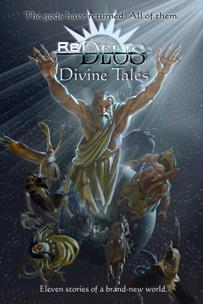
August 31, 2012
About This Writing Stuff...
Bob Greenberger talks about revising a manuscript on the screen vs. on paper. Veronica Sicoe wants more out of science fiction while Dean Wesley Smith would like writers to stop signing over control of their work. Joe Konrath takes a step to promote eBooks for libraries. Kristine Kathryn Rusch warns indie writers away from scam publishing services.
And more...enjoy!
To Print or Not To Print by Bob Greenberger
The Myth of Giving Away 15% of Ownership in Your Work by Dean Wesley Smith
Top 5 Things I Want to See Done in Science Fiction by Veronica Sicoe
How I Did It by Barbara Freethy
Ebooks for Libraries by Joe Konrath
How to Prepare for a Book Launch by Jody Hedlund
A Warning to All Indie Writers Who Need Help Indie Publishing by Kristine Kathryn Rusch
Indie Authors: You CAN Do It! by Crystal Patriarche
The Antihero - Writing a Dark Hero that Readers Will Love by Dr. Antonio del Drago
The Ongoing Saga of the Dodgy Review by Rachel Abbott
From The Red Pen of Doom
Thanks to NYT bestselling author, Howard Weinstein, for introducing me to the Red Pen of Doom blog. Howie pointed out the following four engaging and cogent articles about writing, social media and book promotion.
Forget the Twitter. Free Ink and Airtime are Your Most Dangerous Weapons
The Secret Truth About Writing
The Twitter is Not for Selling Books
Social Media is a Tool, Not a Magic Bullet
August 30, 2012
Author Interview: Scott Pearson
The third victim--uh, writer--on my interview list from the ReDeus: Divine Tales anthology is a man of many hats. Scott Pearson is a fiction and media tie-in writer, self publisher, editor for two other publishers, and a dad. I don't know if or when he sleeps, but let's find out how Scott manages it all!
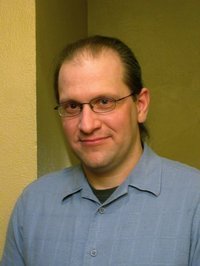
First, tell us where we can find you online.
www.yeahsure.net & www.generationsgeek.com
www.facebook.com/yeahsure & www.facebook.com/GenerationsGeek
@smichaelpearson & @generationsgeek
My infrequent blog, Enemy Lines: Dispatches from a Cranky Writer, is on Live Journal, Tumblr, Word Press, and Blog Spot.
At what point in your life did you realize your passion for fiction writing and storytelling? What was the first story you completed (published or not)?
I loved writing in grade school and knew I wanted to be a writer by the seventh grade. I have no specific memory of my first completed story because it was over thirty-five years ago. And it was bad, no doubt about that, you have to write a lot of bad stories when you start. My first published story was “The Mailbox” in 1987. I’ve put a slightly revised version of that on sale electronically. You could call it the twenty-fifth anniversary edition.
How did your story “Finders Keepers” come to be included in the anthology, Full-Throttle Space Tales #3: Space Grunts (Flying Pen Press, 2009) edited by Dayton Ward?
I got to know Dayton because we were both writing Star Trek for Simon & Schuster. At the Shore Leave convention in 2008, he invited several of us Trek writers to submit for Space Grunts, and I jumped at the chance to do something different. I’d never tried military science fiction before. Trek obviously has military elements, but Space Grunts had a straightforward military theme. Obviously I was pleased that my story made the cut.
In addition to SF, you also contributed mystery stories to such anthologies as Resort to Murder (Nodin Press, 2007) and Writes of Spring (Nodin Press, 2012). Do you find yourself writing with a different voice and style depending on which genre you’re writing? If so, how do they differ?
Each piece has its own needs, and various genres have motifs you need to honor to make them work. “Out of the Jacuzzi, Into the Sauna,” in Resort to Murder, belongs to the subgenre of amateur sleuths, a civilian who gets mixed up in a crime and thinks, “Gee whiz, let’s solve it ourselves!” It’s also a comedy featuring a wise-cracking female lead with a big tip of the hat to the great screwball comedies of Katharine Hepburn, so it needed a lot of fast-paced and irreverent dialogue.
That contrasts with “Finders Keepers,” from Space Grunts, which also had a female lead, but she was a marine. She had to be very focused, hard-core, ready to kick some ass. So the character and the genre dictate much of the voice and style you need to have an authentic story and believable characters within that genre. With some luck and some craft, you hope to develop a personal style that also informs the way you treat each story.
You’ve also had three Star Trek short stories and a novella published by Simon & Schuster. Did you write any Star Trek or other fan fiction prior to your media tie-in work?
I’ve never written any fan fiction, in the sense of something I circulated for free, which I find strange. I really don’t understand why. I guess part of it is simply because I decided I wanted to be a professional writer so early. It just never occurred to me to write simply for the fun of writing without an eye toward professional publication. But I want to make it very clear that I love the idea of fan fiction, and I think it’s great that people explore their favorite shows and movies in this way. I never wrote a word of Trek fiction that I wasn’t trying to sell to Simon & Schuster, but, really, it’s all fan fiction, written from a deep love of the show. Mine just got published.
What was the impetus for launching your own publishing imprint, Stuck in the Middle Press ?
I’ve got a number of short stories, some previously published, some not, that I think are worthy efforts on my part but that don’t have a lot of markets available to them for one reason or another. Instead of letting them gather dust, I decided to get with the twenty-first century and put them out there for ninety-nine cents a pop. It’s a very small-scale experiment that I’m doing at a glacial pace. We’ve all heard the lightning-strike stories of people getting rich self-publishing, but most people making some money this way are writers who have already developed a fan base through traditional publishing. So I’m still putting most of my efforts toward that.
You and I both have stories in the new anthology, ReDeus: Divine Tales (Crazy 8 Press, August 2012). What inspired, “The Tale of the Nouveau Templar”?
Several months ago I was putting together notes on some original novel ideas. I wanted a handful of ideas to bounce off friends before deciding what to pursue. I came up with four and a half ideas. Four were fairly full ideas with at least beginnings and middles and some even had endings. But that half idea was just a disembodied scene involving a Knight Templar who wakes up in the modern world after being burned at the stake in 1307. He’d lost his faith while fighting in the Crusades and didn’t know what to do next, but was burned before really dealing with his thoughts. That scene had popped into my head out of nowhere, but I didn’t know anything more about it and couldn’t figure out what to do with it. When I heard about the ReDeus concept, suddenly I had a context for that scene. Because he was a cynical loner because of his past, I couldn’t help thinking of the classic hard-boiled detectives portrayed by Humphrey Bogart. So the story became a mash-up of the noir detective story and the urban fantasy concept of the return of the gods to the modern world. Which ties back into your question about style and voice, because I had to make it fit into the ReDeus world while still evoking elements of old detective movies. It was a lot of fun to write.
As an editor for two publishers (with nearly identical names), do you find it challenging to make time for writing? What time management advice might you have for new writers?
I’d be very happy if I could give time management advice, because it would mean I knew how to do it myself. Unfortunately, juggling a day job with family and friends , occasional freelance editing and writing jobs, and my own original writing remains a huge challenge. I grab time whenever I can, often staying up too late at night or neglecting a yard desperately in need of weeding, watering, or mowing. Weekends aren’t really time off, because I spend so much time writing. It is getting a little bit easier now that my daughter is a teenager and happy to be off on her own or with her friends. So what did I do? I came up with a podcast called Generations Geek that she and I are doing together. But you could hear similar stories from most writers. Most don’t make a living from it, so you pursue it as best you can in the time you make available for it.
What can readers expect next from you?
I have a story, “On My Side,” in an upcoming anthology from Hadley Rille Books, A Quiet Shelter There. The
theme of this speculative anthology is companion and service animals, and 70 percent of profits will be
donated to Friends of Homeless Animals (www.foha.org). It was a great mash up, service animals and
speculative fiction. The release date is to be determined.
Beyond that, everything gets even more vague, but I do have other irons in the fire over the next year or so.
When I know more I’ll post about them.
What does Scott Pearson do when he isn’t writing or editing?
I do a lot of reading. (Related to that, I write a couple of book reviews a month, one for the print publication Suspense Magazine, one for the online Author Magazine. Sorry for mentioning more writing!) I’m trying to make more time for movies and I love computer games far more than I ever have time for. I want to start digitizing old LPs, but instead spend more time listening to CDs. I like keeping up with friends around the country via social media, as well as spending time with local friends over a good glass of wine. Bill Leisner and I get together now and then and try to figure out how to take over the writing world. You know, the usual stuff.
